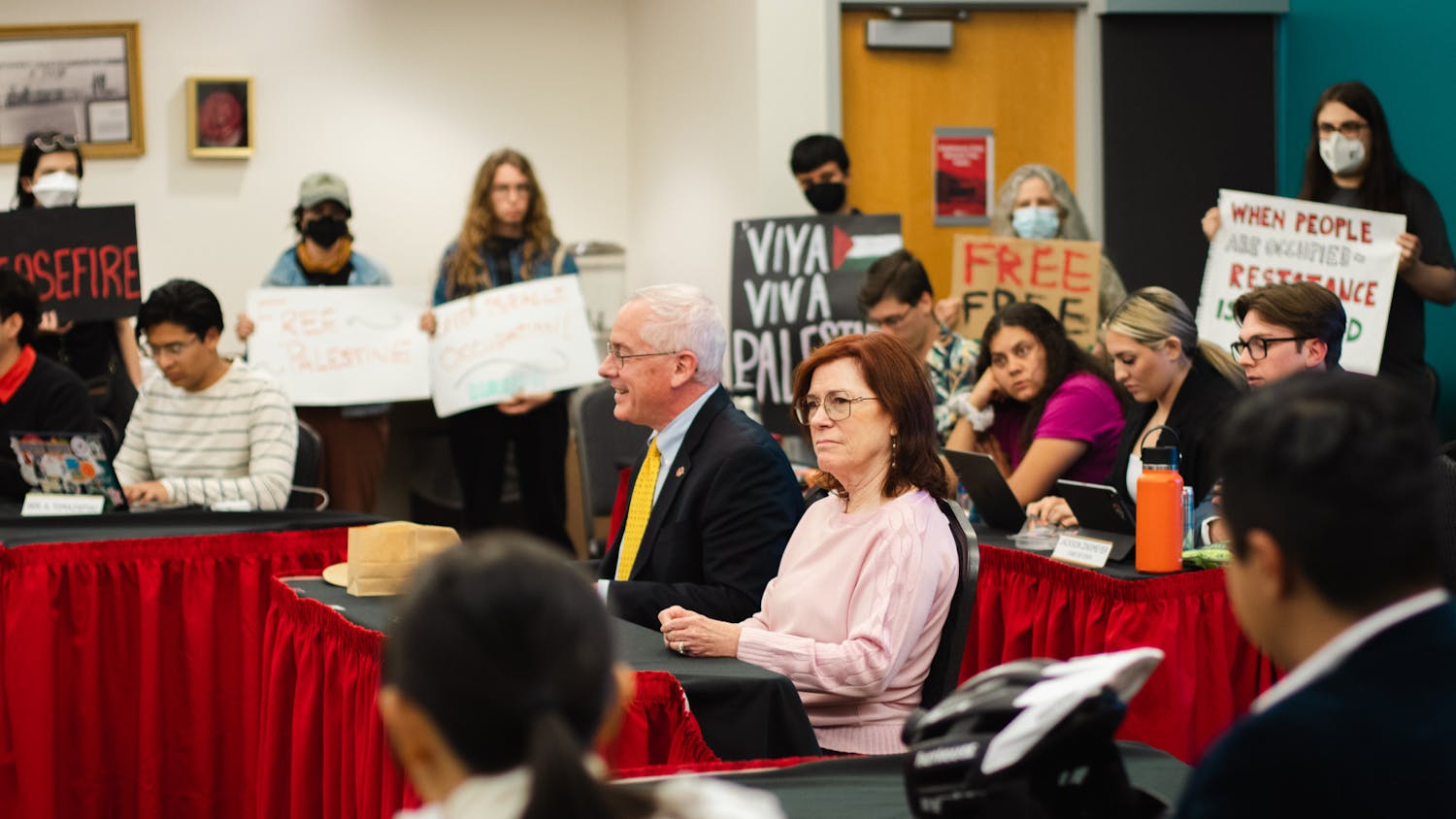Q: This semester I keep getting sick and can’t seem to stay well. I drink lots of water and try to eat a balanced diet, but keep getting sick. What can I do to bolster my immune system?
A: I’m sure many readers can relate to you. We see a lot of repeaters in our clinic, especially near the end of the semester, when stress is high. Stress is hard on the immune system. We also get repeaters during the winter months, when we’re all crammed together indoors, breathing each other’s air and germs. Student teachers are especially susceptible, since they get up close and personal with lots of kids, who get up close and personal with each other’s germs.
What can you do about it? First, the basics. Rest! Your body is well designed to fight off germs, but it can’t work as well when it’s tired. If you think you don’t have time to sleep, think again. You know in your gut that lack of sleep makes you feel bad and think worse, so don’t cram all night. You’ll be healthier and perform better academically.
It’s great that you’re trying to eat a balanced diet. Loading up on fruits and vegetables will help keep your immune system strong. Staying hydrated is important too – soak the system with up to 2 gallons of water intake a day. Don’t take more than that, though, or your kidneys will be unhappy.
Regular exercise helps your body fight disease. I know it gets tempting to forgo the daily run or gym session when schoolwork is pressing, but try to keep it up. You won’t regret it. It helps decrease stress, among other things. If you have other ways to mitigate your stress levels, go for it! Decreased stress means increased immunity.
Beyond the basics, the next level of protection involves keeping the germs out of your body. Most contagious viruses (colds, flu, bronchitis, gastro-enteritis) enter your body through your face. Either you breathe them in, like when someone sneezes on you, or you eat them, in contaminated or shared food.
Logically, then, it would make sense to avoid people who are sick, cover your coughs and sneezes if you are the sick one, and don’t share food or utensils with anyone. In addition, wash your hands and/or use hand sanitizer before you eat or prepare food. In general, it is a good idea to keep your hands off your face as much as possible. No need to escort the germs into your system.
Don’t smoke. Smoking paralyzes the tiny cilia in the lungs that clear the passages of foreign substances. It also irritates your nasal and respiratory passages, making them nice and sticky for invaders to latch onto.
Don’t drink to excess, especially if you’re run down, stressed out, or not sleeping enough. Alcohol can dampen your immunity.
Our bodies have a variety of innate protective mechanisms in place to keep us from catching germs. The cough and sneeze reflexes blow viruses back out into the world. Enzymes in tears and skin oils break down some germs. Mucous traps bacteria and small particles. Stomach acid kills more germs.
The idea of specific immune boosters has been somewhat controversial in Western/Allopathic medicine but finally some studies are supporting the idea. Try the following:
Vitamin D. This essential vitamin is made in our skin with the help of sunlight, and has been found to be important in immunity. It may surprise you to know that even in New Mexico it is difficult to get enough rays to do the trick. Most people benefit from a supplement of at least 1,000 IU.
Get content from The Daily Lobo delivered to your inbox
Echinacea. This is an herb that can nip a cold in the bud if you start taking it early in the course of illness. The tincture tastes nasty but is the most powerful form. Add a dropper-full to orange juice to hide the bitter flavor.
Zinc is used in cell division and growth, wound healing and immunity. It is found in high protein foods such as beef, pork, lamb, also in peanuts and legumes. You can get zinc in supplement form, or in cold-buster products you have seen on TV. Zinc lozenges are particularly effective.
Astragalus, also known as milk vetch or Huang Qi, is an herb that enhances the immune system by increasing antibody levels in nasal secretions. In the Chinese medical paradigm, Huang Qi tonifies the Qi and Blood, increases Wind and raises Yang. Don’t ask me what that means, but my Doctor of Oriental Medicine colleagues assure me it’s a good thing.
Garlic is used by many to fight colds and as a natural antibiotic. Formal medical studies are pending. Other possible immune boosters are certain mushrooms and the Chinese herb blend Yin Ciao.
The body’s immune system is a marvel of nature. Most of the time it keeps us safe and well, but no system is perfect all the time. Give yours the TLC it deserves and if it fails you, be patient, because it will bounce back in time.
Dr. Peggy Spencer is a physician at Student Health and Counseling. She is also co-author of the book “50 Ways to Leave Your 40s.” Email your questions directly to her at pspencer@unm.edu. All questions will be considered, and all questioners will remain anonymous.





